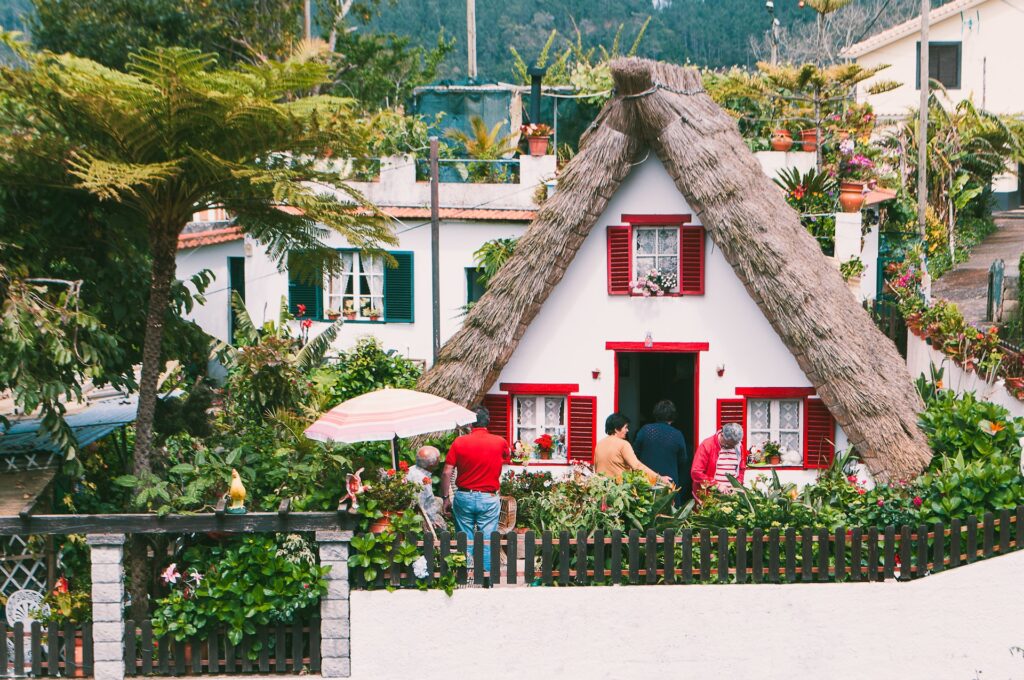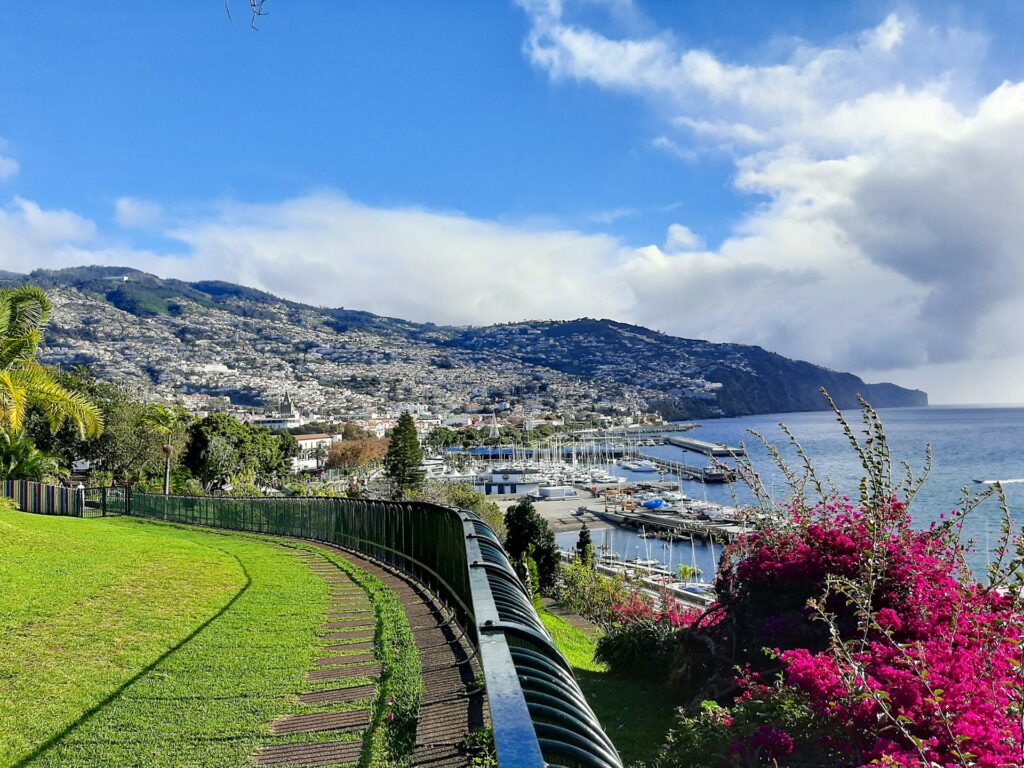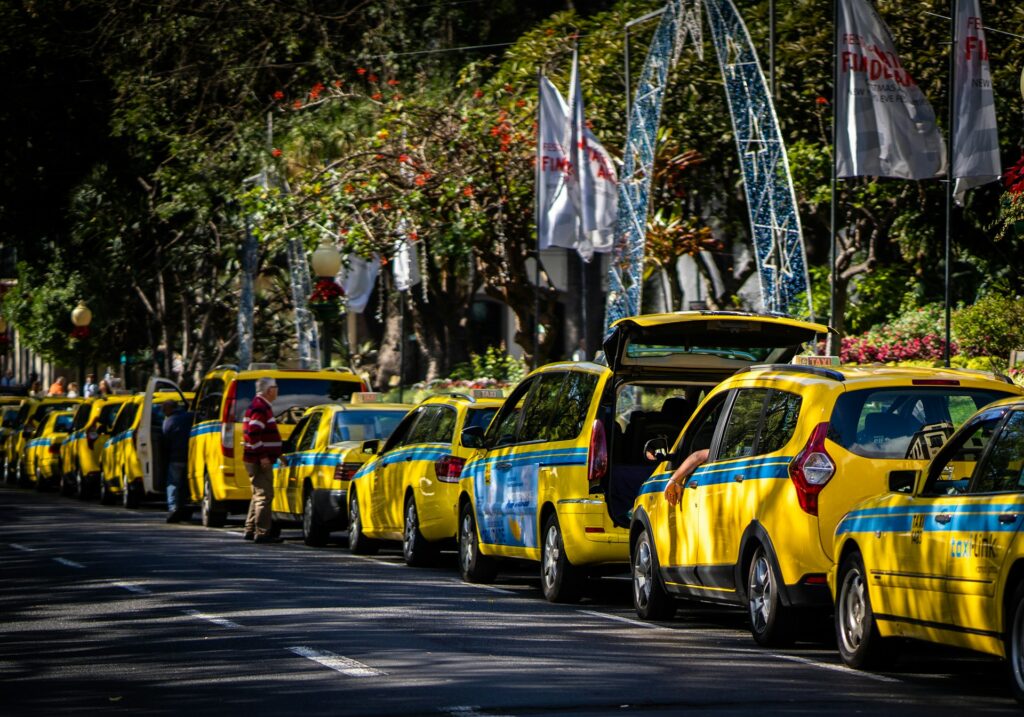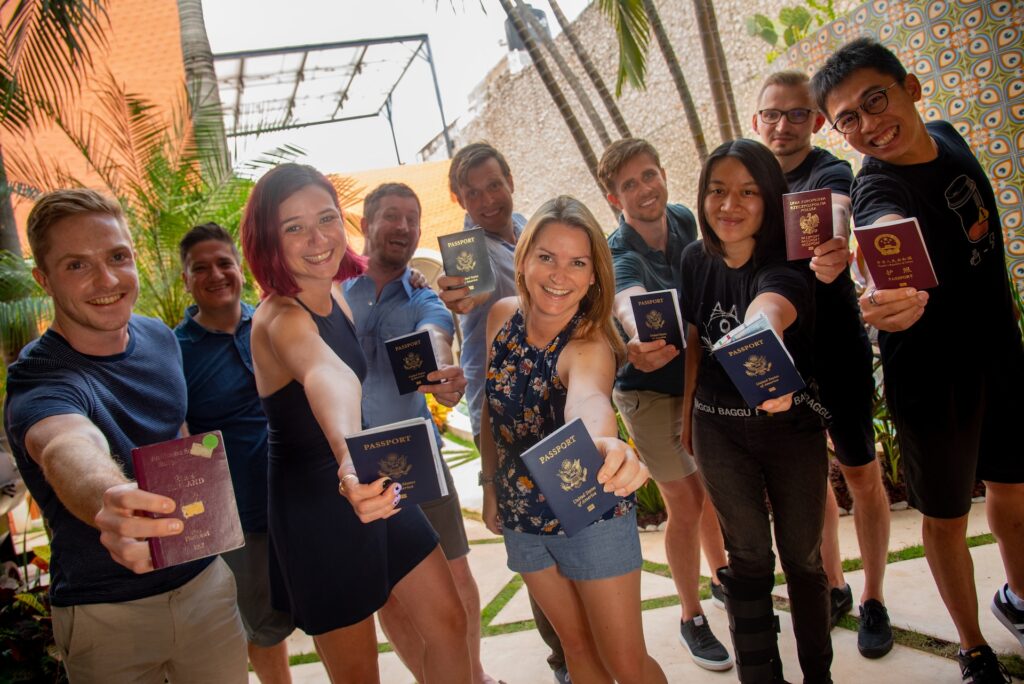Do you know the Cost of Living in Madeira? Did you know Madeira welcomed over 2 million overnight tourists in 2023?
This statistic shows a lot about Madeira and its cost of living. It is an island located in the North Atlantic Ocean, which ultimately makes it one of the most popular regions of Portugal. More people now want to live in Madeira because it’s calm, pretty, and inexpensive.
But the question is, how expensive is it?
Madeira is an autonomous region of Portugal. It is actually a group of islands in the Atlantic Ocean, with the main island also called Madeira. It is among the Atlantic Ocean’s most exquisite islands.
It offers stunning views and a relatively affordable lifestyle, but there are a few things to keep in mind. Local prices, inflation trends, and overall expenses determine the cost of living for singles, couples, and families. Let’s analyze the cost of living in Madeira in detail.

Cost of Living in Madeira: Pros & Cons
Madeira offers a unique mix of benefits and challenges for those considering a move. Here’s a quick look at the pros and cons across key areas like cost, lifestyle, and island infrastructure.
Breakdown of Cost of Living in Madeira
Madeira isn’t just postcard-perfect landscapes and year-round sunshine. It’s also a place where housing costs can surprise newcomers if they’re unprepared. So, what’s the cost of living in Madeira?
Whether renting short-term or buying a forever home, here’s the lowdown on navigating the island’s property market without blowing your budget.
Renting a House in Madeira: City vs. Countryside
Let’s start with Madeira’s cost of living and focus on Funchal, the capital!
According to Numbeo, the cost of living in Madeira for a one-bedroom apartment in the city center is €1,260.00/ month, but venture just outside the core, and prices dip to €956.25/month or less.
Need more space? Three-bedroom units in Funchal start around €2,134/month.
Oddly enough, rural areas like Santana or São Vicente sometimes charge more for similar properties, such as €1,400-€2,000/month.
Most long-term rentals come fully furnished, complete with balconies (often with sea or mountain views), and move-in ready.
But if you’re eyeing a holiday rental, brace yourself: prices in touristy areas like Funchal can hit €306/night during peak seasons like December.
Pro tip: Landlords usually ask for a 1–2 month security deposit, and contracts lock you in for a year. Always read the fine print. Portugal’s tenant laws are solid, but you don’t want surprises.
Buying Property in Madeira, Portugal: Cost of Living in Madeira
Funchal’s property market isn’t for the faint of wallet regarding the cost of living in Madeira. Expect to pay €3,473/m² for an apartment here. But head to towns like Santana or Faial Island, and prices plummet to €1,500/m² or less, which is a steal for permanent residents.
Just remember: the sticker price isn’t the whole story.
Here’s what sneaks up on buyers:
- The Municipal Property Tax (IMI) fluctuates based on your home’s value and location.
- Shell out €1,500–3,000 for a local lawyer for paperwork.
- Set aside 1% of your property’s value yearly for old plumbing, or a leaky roof won’t fix itself.
Foreigners can buy freely here, but don’t skip the legwork, especially when looking for the cost of living in Madeira. Some rural areas lack clear zoning laws, and you don’t want to buy your “dream home” in a landslide zone.

Utilities and Household Bills: Cost of Living in Madeira
Planning your budget for life in Madeira? Skip the rookie mistake of forgetting basics like water, electricity, gas, and internet when determining the cost of living in Madeira. These services might seem small, but they’ll nickel and dime you faster than anything else.
Here’s what to expect for basic services:
- For an 85m² apartment, basic utilities (electricity, heating, water, and waste) average €94/month. Prices can swing between €80 and €120 depending on usage. You’ll see the difference if you crank up the AC during summer or cozy up with heating in winter.
- Internet plans are another key factor. A reliable 60 Mbps+ connection costs around €41/month, though deals vary by provider. Budget-friendly options start at €22, while premium packages (think fiber optics or bundled TV) creep toward €59.
- Mobile plans are refreshingly affordable here. For calls + 10GB+ data, most residents pay roughly €17/month, but prices range from €10 (basic coverage) to €25 (unlimited data).
Pro tip: Compare providers like MEO, Vodafone, or NOS. They often run seasonal promotions
Grocery and Food Expenses: Cost of Living in Madeira
The cost of living in Madeira means balancing fresh market finds with the convenience of supermarkets. In Funchal, vendors sell plump tomatoes for €2.17/kg and potatoes for €1.77/kg.
A loaf of bread here costs €1.45, and milk is just under €1 per liter, which is cheaper than most bottled water. For protein, chicken fillets average €6.56/kg, while local cheese is €9.10/kg, a steal compared to imported varieties.
Supermarkets like Pingo Doce simplify bulk shopping: rice (€1.47/kg) and pantry staples stay consistent, but weekly flyers slash prices on items like olive oil or wine.
A single person might spend €200–300 monthly here, though savvy shoppers who split trips between markets and stores often cut costs by 10–15%.
Families of four average €600–800, but opting for seasonal produce (think €1.85/kg apples in autumn) stretches budgets further.

Transportation Costs in Madeira
Figuring out how to get around Madeira without overspending requires a mix of strategy and local insight, and it must be included in your cost of living. Madeira’s buses are a lifeline for budget-conscious residents.
A single ride between Funchal and Câmara de Lobos costs €1.95, while shorter municipal hops (think Funchal’s city center) drop to €1.45.
Buy tickets at kiosks or via apps like SAM Mobile to dodge the €0.50 markup for onboard purchases. For daily commuters, the €30 monthly pass is a steal. Unlimited rides for less than most spend on coffee in a week.
Madira
But here’s the catch: routes cling to Madeira’s infamous hairpin roads. A 10km trip might take 40 minutes, but you’ll trade speed for postcard views.
Rural areas like Jardim da Serra have buses that run twice a day. Miss the 7:15 AM departure, and you’ll be stuck until noon. Always grab a timetable from the Funchal terminal. It’s your lifeline.
Coming to Taxis, they start at €3.50 the moment you hop in, plus €1.24/km. A quick 5km ride from Funchal to Monte Palace is €9.70. But if you linger, maybe snap photos at Pico do Arieiro, and the meter ticks €16.60/hour just for waiting. For context, a day-long taxi tour could hit €150, while a monthly bus pass costs €30.
If you rent or buy a car, a new Toyota Corolla runs €34,070, and gas floats around €1.65/liter. But here’s what tourists miss: parking in Funchal’s center costs €2/hour, and narrow village roads demand a PhD in parallel parking. Locals often stick to scooters or carpooling, but why pay €90/month in gas when buses cover 80% of your trips?
Education in Madeira: Detailed costs
Moving to Madeira with kids? This can increase your cost of living in Madeira. Navigating school options is a mix of trade-offs. Public schools here are free and surprisingly strong, like small classes, dedicated teachers, and field trips to spots like Cabo Girão.
But let’s be real: if your family’s juggling languages or plans to relocate again, private or international schools often feel safer, even with the price tag.
Take preschools. A full-day private kindergarten costs about €383/month—roughly the cost of a studio apartment in rural Santana. International primary schools? That’s €5,500/year, and prices climb in Funchal’s city center.
But here’s the hack: Schools like the Madeira International School sometimes slash fees for siblings or offer pay-in-installment plans. Always call ahead—what’s listed online might not reflect hidden discounts.
Public schools shine for families committed to settling long-term. Your kid learns Portuguese fluently, joins local hiking clubs, and pays nothing.
But if you’re here for a two-year contract? The cost of living in Madeira suddenly includes weighing €5k/year in school fees against weekend getaways to Porto Santo.

Entertainment and Leisure
Let’s be honest: living in Madeira means you get the best of both worlds without blowing your budget. The cost of living in Madeira is sometimes quite affordable compared to the rest of the cities.
Seriously, how many places let you chase waterfalls in the morning and sip €1.50 ponchas by sunset, all while keeping your wallet happy?
A monthly gym membership averages €38 for fitness enthusiasts, though boutique studios in Funchal might push that to €50. If you prefer fresh air and active time, rent a tennis court for €7.50/hour on weekends, cheaper than most cinema tickets (€7.75 for new releases).
Outdoor adventures dominate the island’s social scene. Guided group hikes start at €30/person, while boat trips to spot dolphins or explore caves vary widely (budget €50–100 for half-day excursions).
Local festivals, like June’s Festa and do Vinho (Wine Festival), are mostly free, though premium events think concert headliners at Funchal’s Christmas Market might charge €10–20 entry.
A casual evening with drinks at a bar in Câmara de Lobos costs €20–30, while cocktails in Funchal’s marina area can hit €50.
Smart Ways to Beat the Cost of Living in Madeira
Managing the cost of living in Madeira is an art, and there are a few ways to overcome this:
- Shop like a local: Hit farmers’ markets at closing—vendors offload veggies for half-price.
- Bus + Hike: The €30 monthly pass covers Funchal to trailheads. Walk the rest (free views > taxis).
- Ditch Imports: Swap peanut butter for manteiga de alho (garlic butter), which is tastier and cheaper.
- Fly Smart: Book SATA flights 3 months early—€50 RT to Porto beats last-minute €200.

Cost of Living in Madeira Compared to the US
When comparing the cost of living between Funchal, Madeira, and New York City, Funchal offers a significantly more affordable lifestyle.
According to Numbeo, as of April 2025, the estimated monthly costs for a single person in Funchal are approximately €643.10, excluding rent, while in New York City, the same expenses amount to about €1,548.10. This indicates that general living expenses in Funchal are around 58% lower than in New York City.
Housing costs further highlight this disparity. Rent prices in Funchal are significantly lower than in New York City. For example, the average rent for a one-bedroom apartment in Funchal’s city center is considerably less than in New York City.
This substantial difference in housing expenses contributes greatly to the overall affordability of living in Funchal compared to New York City.
Cost of Living in Madeira Compared to the UK
When comparing the cost of living between Funchal, Madeira, and London, UK, Funchal offers a more affordable lifestyle. According to Numbeo, as of April 2025, the overall cost of living in Funchal is approximately 38% lower than in London, excluding rent.
When including rent, the difference increases to about 41% in favor of Funchal.
Housing costs significantly contribute to this disparity. Rent prices in Funchal are about 45% lower than in London. For example, a one-bedroom apartment in Funchal’s city center averages around €1,000 per month, whereas in London, the same apartment would cost approximately €2,600.
How to Move to Madeira, Portugal
Portugal offers several visa pathways for people looking to relocate—whether you’re retiring, working remotely, starting a business, or making an investment. Here’s a quick overview of the most popular options:
Portugal D7 Visa
Ideal for retirees or anyone with a stable passive income, the D7 Visa requires proof of a regular monthly income of around €870. It’s a great fit for those who want to enjoy Portugal’s peaceful lifestyle without needing to work locally.
Digital Nomad Visa Portugal
Designed for remote workers and freelancers, the D8 Visa allows you to live in Portugal while working for a foreign employer or running your own online business. You’ll need to show at least €3,480 in monthly income. It’s perfect if you’re after a relaxed European lifestyle without pausing your career.
Portugal D2 Visa – Entrepreneur Visa
If you’re looking to start or expand a business in Portugal, the D2 Visa could be for you. It provides a residence permit (initially valid for up to two years) and is suited for entrepreneurs and independent service providers ready to invest and grow in the Portuguese market.
Golden Visa – Residency by Investment
The Golden Visa offers residency through investment. Though real estate no longer qualifies, you can still invest €500,000 in approved investment funds, or contribute to scientific research or cultural projects. It’s a popular route to residency—and potentially citizenship—for those making a meaningful economic contribution.
How Can We Assist You
Portugal Residency Advisors® is our trusted partner in assisting individuals and families with their relocation process to Portugal. With expert guidance on residency options, investment opportunities, and legal procedures, they ensure a smooth and hassle-free transition.
Whether you’re considering Portugal for the Golden Visa, D7 Visa, or other residency programs, their team provides personalized support tailored to your needs.

Find Your Dream Property
Portugal Investment Properties is your gateway to smart real estate investments in Portugal, offering savvy investors access to an exclusive collection of carefully curated properties.
Whether you’re searching for your dream home or a prime investment opportunity in Portugal’s prestigious market, we provide more than just listings – experience a personalized journey tailored to your aspirations.
Begin your journey to discover your perfect Portuguese retreat. Contact us today!
Frequently Asked Questions About Cost of Living in Madeira in 2025
Is Madeira expensive to live in?
The cost of living in Madeira strikes a sweet spot. Think €1.50 coffees and €500/month rural rents. While imported goods like peanut butter cost extra, fresh market produce and affordable public transport keep budgets manageable compared to Lisbon or Porto.
How much money do you need to move to Madeira?
Plan for €800–€1,300/month for a central Funchal apartment, though villages like Ponta do Sol offer cheaper rentals. Factoring in groceries (€200–€300/month) and leisure, the cost of living in Madeira comfortably suits mid-range European budgets.
Pros and cons of living in Madeira?
Pros: Year-round mild weather, safe communities, and low cost of living in Madeira for basics, ideal for remote workers or retirees.
Cons: Island isolation inflates imported prices, and jobs outside tourism require hustle.
The main source of income in Madeira?
Tourism fuels the economy, shaping the cost of living in Madeira through seasonal demand. Banana farming and Madeira wine add niche income streams, but most expats rely on remote work or savings.
Where do most expats live?
Funchal’s mix of amenities and coastal views draws expats, though areas like Calheta offer quieter cost of living savings. Ribeira Brava and Ponta do Sol blend affordability with digital nomad hubs.
Is the property in Madeira expensive?
Funchal averages €3,170/m², but rural spots like Santana dip below €1,500/m². The cost of living in Madeira varies widely—central locations cost more, but the outskirts balance value with charm.
Can foreigners buy property?
Yes, foreigners can purchase property in Portugal without any restrictions. The Portuguese government encourages foreign investment in real estate, and the process is straightforward and transparent. To proceed, you’ll need to obtain a Portuguese tax identification number (NIF) and open a local bank account. It’s also advisable to engage a local lawyer to assist with the legal aspects of the transaction.
Can I emigrate to Madeira?
Yes, you can emigrate to Madeira whether you’re an EU or non-EU citizen. EU/EEA and Swiss citizens don’t need a visa and can live, work, and buy property freely—just register locally if staying over 90 days. Non-EU citizens must apply for a visa, with options like the D7 for passive income, D8 for digital nomads, D2 for entrepreneurs, or the Golden Visa for investors. Once approved, these visas allow you to live in Madeira with residency rights.
How much does it cost to rent in Madeira?
A one-bedroom apartment in Funchal, often furnished, costs €900–€1,300/month. For a lower cost of living, try Machico or São Vicente (€600–€800/month), which offer similar sea views but fewer tourists.